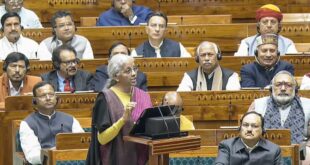 Dr. Seema Javed
Dr. Seema Javed
Commons – such as community forests, pastures, and water bodies – are critical for rural and tribal communities to meet basic needs such as food, water, firewood, and fodder. They also provide ecosystem services such as surface and groundwater recharge, soil nutrients, pollination, pest control and carbon storage. This is all vital for the viability, resilience and growth of farms and the livelihoods of local communities, more so in the face of the unfolding climate crisis.
Recently more than 500 participants from over 20 Indian states gathered at the Dr. Ambedkar International Centre (DAIC) in New Delhi for the Commons Convening 2024, to protect India’s shared resources . A landmark event dedicated to the conservation and governance of India’s Commons. This event brought together a diverse array of stakeholders, community leaders, policy makers , civil society organizations and academicians.
Commons Convening 2024 is the first gathering designed to advance a cohesive, system-wide dialogue that amplifies the importance of Commons in achieving the 2030 Agenda for Sustainable Development and climate action goals.
The significance of India’s Commons — comprising community forests, pastures, and water bodies — cannot be overstated. These resources span over 205 million acres, accounting for a quarter of India’s landmass, and are essential to the livelihoods of over 350 million rural poor. Commons provide vital resources such as food, water, medicine, firewood, and timber, while also offering critical ecosystem services, including clean water, fertile soil, pollination, pest control, and carbon storage, which are indispensable for sustaining local farms and livelihoods, especially in the face of the ongoing climate crisis.
While the value of these common resources is immense, equally crucial are practices that local communities follow to govern and regulate their sustainable use.
Jishudan Dishari from Odisha, whose village Barakutni received the Prakruti Mitra award , said that- “When I was a child I learnt from my grandmother that nature will save people. But as I grew up, I witnessed soil erosion and degradation of my village forests and realised that now people have to save nature. This pushed me to start exploring conservation techniques like planting trees and strengthening irrigation systems to regenerate natural resources.” Now Jishudan works with over youths and women from nearby villages and has been urging wider participation from society in conserving Commons.
Contrary to common belief, village communities are fully capable of managing their own provided enabling conditions are available to them. The degradation of India’s Commons and the traditional governance practices that sustain them highlight the urgent need for collective action. The Commons Convening aims to put the spotlight on the significance of the Commons in public discourse, promoting civic engagement and inspiring collective action across communities, key decision makers, academia and businesses.
 Jubilee Post News & Views
Jubilee Post News & Views





